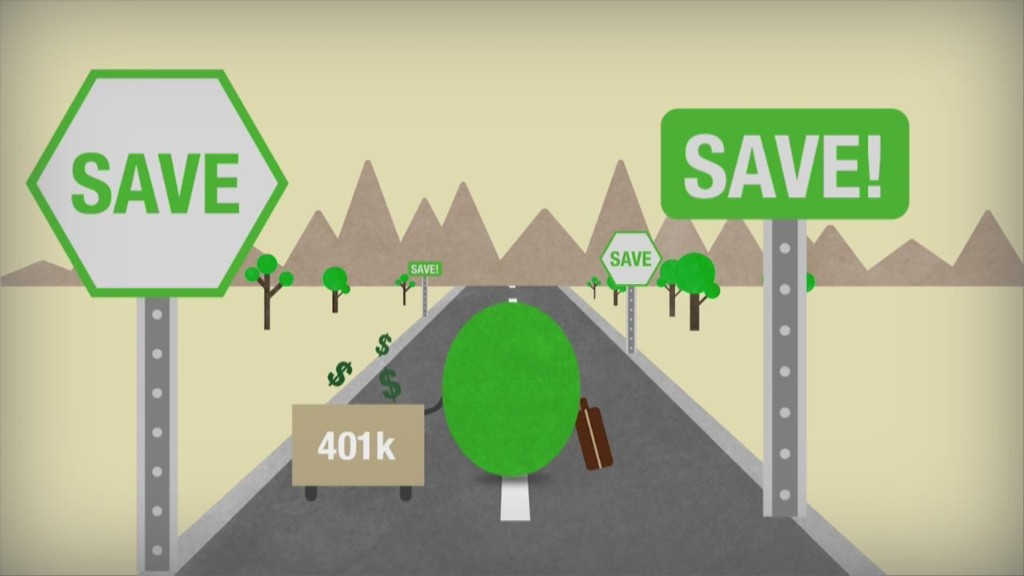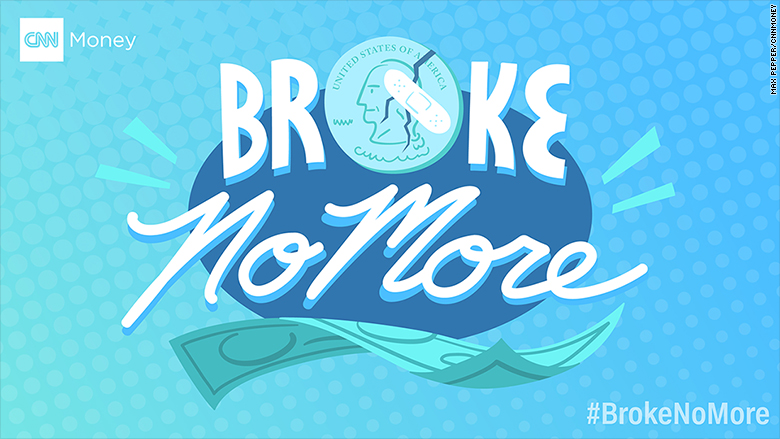
Should you roll over your retirement plan to your new job (and pay the rollover fee) or let it stay put and incur administrative fees? --Lyra
There are a few things you can do with your retirement plan when switching jobs -- and some pitfalls to avoid.
For starters, you can leave it right where it is. You can cash it out (but probably shouldn't). You can also roll it over into your new employer's 401(k) plan, or you can roll it into a separate IRA.
Here are some tips on how to figure out the best choice for you.
Don't cash out
That hefty balance may look tempting, but the amount of cash you'll end up with will look nothing like it.
Most experts warn against withdrawing funds from your retirement plan because you'll lose too much of it. If you are under the age of 59 ½, you'll be hit with a 10% penalty for cashing out your 401(k). Plus, you'll have to pay income taxes on the withdrawal.
Keep the money where it is
In general, you are free to leave your money right where it is, even if you no longer work for that company. (Though some employers may not allow you to keep the plan if you have less than $5,000 in your account.)
There are several factors you want to consider when comparing your old retirement plan to your new one. But fees are an important one.
There may not be any fees associated with moving your retirement funds from one 401(k) to another -- you shouldn't have to pay to transfer your 401(k) plan from your old job to your new one.
But there are some other administrative fees all plans have that you'll want to consider.
"Research all of the fees that would affect your investments, and compare them on both plans," said Katherine Fibiger, a certified financial planner with Stratos Wealth Partners. "There are also other 'hidden' participant fees and fund expense ratios."
Related: How do you financially prepare for a career change?
Fibiger noted that charges like fund expense ratios -- which are determined by your balance and the plan's rate -- are annual, and can add up. Comparing those fees will give you a good sense of how much each plan costs.
You'll also want to take a close look at how many investment choices the plan has. Some are limited to a handful of funds with high expense ratios, while other plans offer a lot more choice.
If you've considered both options and think your old plan is the best one for you, you can keep it. Nothing wrong with holding on to a good thing.

Move your savings to your new 401(k) plan
If your new employer offers a better deal, you should consider moving your plan over -- especially because there are advantages to consolidating your retirement savings. It's easier to manage fewer accounts, and more likely that you'll make the best choices if you have fewer plans to consider.
Related: The secret to being a great saver
By leaving money in an old plan, you're also opening yourself up to certain risks. That plan's investment options could change, or your old employer could go out of business, making it difficult to access the 401(k).
To avoid accidentally getting hit with penalties and taxes, make sure to transfer the plan directly. That means that instead of having the rollover check made out in your name and moving the money over yourself, you should have the check made out to the custodian of your new plan in a direct transfer.
Open an IRA
If neither of your 401(k) plan options have great investment choices or both come with high fees, you may want to think about opening your own rollover IRA, which gives you more control over your investments, and may help you minimize fees.
"There are hundreds of funds you can [hold in] an IRA which have good long-term track records," explained Jon L. Ten Haagen, certified financial planner and founder of Ten Haagen Financial Group. "You then have to determine how many years until you will retire so you can decide how much risk you are comfortable taking."
As with any retirement plan, make sure you research the fees associated with your IRA and choose a low-cost option.
Got a money question for Broke No More? Ask us here to be included in a future column.
